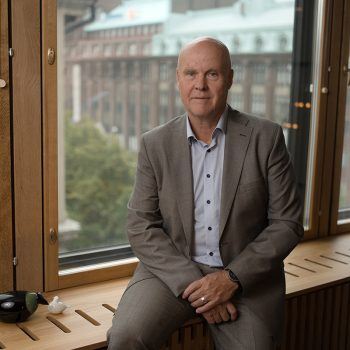The next elections for the European parliament take place 9.6.2024. STTK believes the European Union should be developed as a community of democratic states, through a fair internal market and through the wellbeing of workers.
We want the EU to promote wellbeing and employment in a socially, economically, and ecologically sustainable way. The Union´s mutual minimum legislation builds a fair playing field in the internal market. A strong and united EU is important for Finland also for reasons of security policy.

1. The EU needs to continue being a community of democratic states
- A strong EU promotes security, democracy and human rights in Europe and the world. It creates economic stability and wellbeing for Finnish workers.
- EU decision-making should be open, democratic, and as close to the citizens as possible.
- The European Union needs to be strengthened and built based on values, internally and as the union enlarges. There is also a need for tools that can be used against policies targeting joint values.
- Trade agreements are important for Europe’s economy and for employment. Contractual parties must commit to workers’ fundamental rights and the principles of sustainable development.
- Companies have an important role in ensuring that workers’ rights are respected. Binding EU-legislation on company due diligence prevents human rights infringements and repairs harmful practices.
2. The EU crates stability in the economy and ensures a fair playing field
- The EUs joint funds need to be developed in a fair and sustainable way in the future. Joint action by the member states will still be needed to prevent harmful tax competition.
- The EU needs to commit to the target of being carbon neutral by 2050. The green transition and detachment from fossil raw materials must be done in a fair way that respects the principles of sustainable development and takes employment into consideration. Security during the transition needs to be considered when workers need to up- or reskill or change jobs all together.
- The green transition needs to be promoted in a technology-neutral way ensuring that it doesn’t drive sectors of industry away from Europe to less regulated economies.
- Europe needs a joint investment plan and strong proactive industrial policy to ensure quality jobs.
- Digitalization and artificial intelligence need to be regulated to set a fair frame for future development.
3. The social dimension needs to be developed and the implementation of the European pillar for social rights needs to be continued
- The readiness of social partners to participate in collective bargaining needs to be promoted and the coverage of collective agreements needs to be increased throughout the EU.
- The Social dialogue and its different forms need to be developed.
- Minimum legislation concerning working life and gender equality is needed to ensure workers’ rights and welfare.
- Working conditions and legal protection in telework as well as the right to disconnect need to be secured for workers.
- The legal protection and working conditions of persons working in the platform economy must be to be ensured.
- Workers’ rights and protection of privacy need to be ensured in legislation regarding digitalization and artificial intelligence.
- Legislation on managing the psychosocial risks of work needs to be developed.
- A genuine possibility to upskill, reskill and change profession needs to be ensured for all workers.
- Fair labour mobility needs to ensured and social dumping prevented.
- Legislation concerning social security and occupational pensions need to remain under national competence.
For more information:
Head of International Affairs


